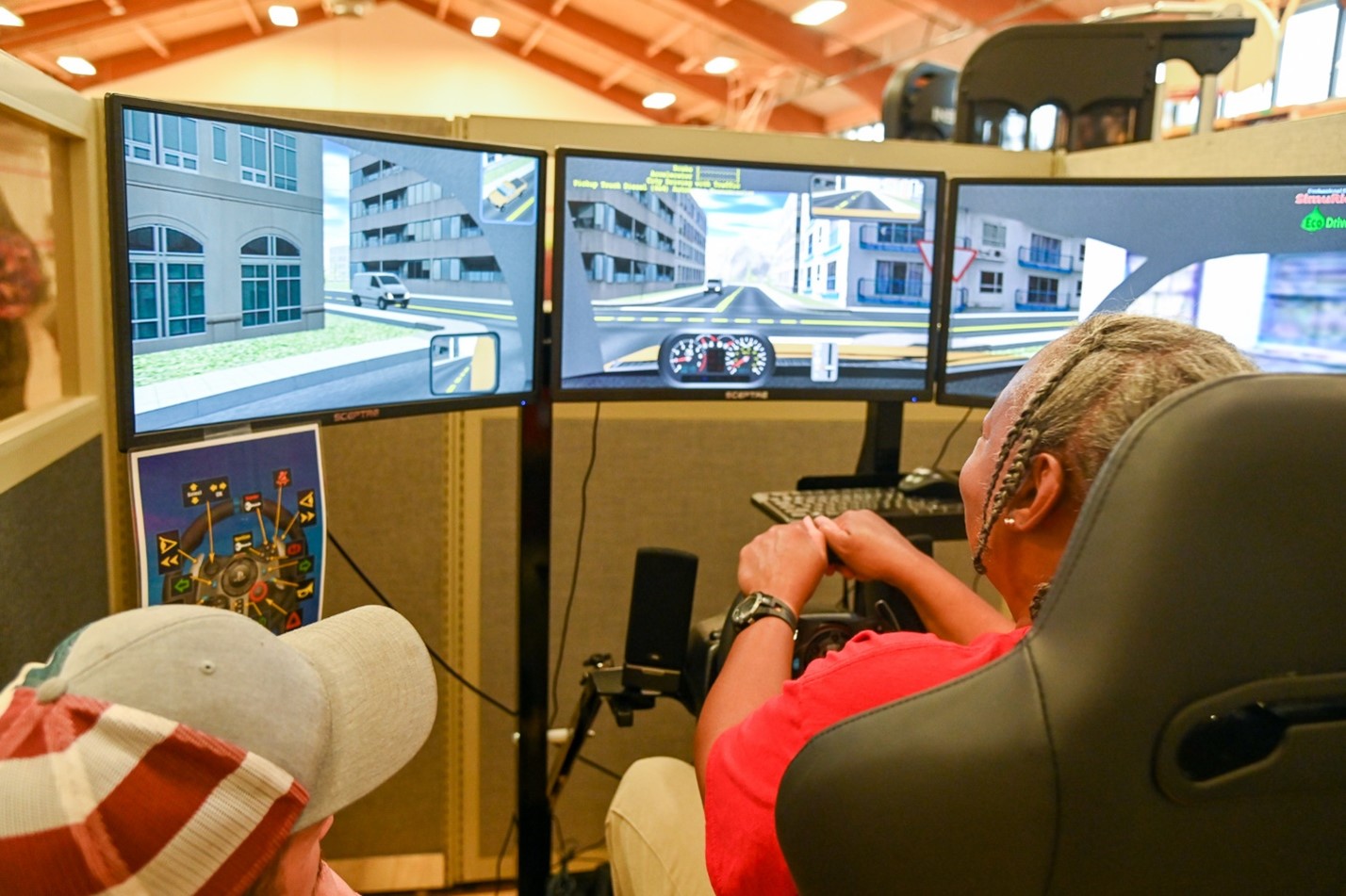Mission Creek Corrections Center for Women continues to find new ways to support incarcerated women as they prepare for life beyond prison. Recently Mission Creek has introduced a driving simulator at their facility. Set up in the gymnasium, the simulator consists of a driver's seat complete with a steering wheel, gearbox, and pedals, all connected to 3 screens. This setup provides an immersive experience, allowing users to operate various types of vehicles, including cars, trucks, tractor trailers and even school buses.
Participants at the facility can sign up for a 30-minute window during designated gym hours, and each session provides a range of experiences. With different vehicle models available, users can test their abilities in diverse driving environments, simulating real-world conditions. The immersive setup is designed to give users a sense of control and familiarity with driving, reinforcing safe driving habits in a structured and supporting environment.
“It's been a while since I've driven, so I wanted a refresher on how to drive and to stay current on rules of the road,” says Melissa, incarcerated individual. “The simulator also teaches how to drive a manual transmission, which feels very realistic.”
The simulator was fully funded by The Washington Way after receiving a staff proposal as part of the Washington Way initiative. The Washington Way program is a partnership between the Washington State Department of Corrections (DOC) and Amend at the University of California San Francisco to bring a health-focused approach to transforming correctional culture within Washington's prison facilities and reentry centers.
The introduction of the simulator is part of a broader initiative to support incarcerated individuals in gaining practical skills that will benefit them upon release.
Many incarcerated individuals at Mission Creek have either lost touch with driving over the years or in some cases never learned before incarceration. This program serves as a crucial “refresher” for those who need it, helping to get over the anxiety of controlling a vehicle. By simulating various driving scenarios, participants are exposed to a range of driving challenges and situations, including urban streets, highways, and even challenging terrains such as a snowy mountain pass. This versatility enables users to gradually build confidence, familiarity and reflexes that will be beneficial when they eventually transition back to actual vehicles.
“It's been 16 years since I stepped behind the wheel and I thought this shouldn't be too difficult,” says Tonie, incarcerated individual. “But it was a completely different experience as it all felt brand new and kind of scary. But after practicing, it's now starting to get better.”
For others who are new to driving, the simulator introduces vehicle operation in a controlled setting. Incarcerated individuals may have struggled with limited access to transportation or had fewer resources to pursue drivers' education prior to incarceration. This opportunity gives them a foundation on which to build their driving skills, allowing them to practice before obtaining a license.
“I'd like to eventually get my CDL. Today, I practiced on the simulator using a firetruck and it was cool to see what that might be like.” Says Sophia Mitchell, incarcerated individual.
Obtaining a drivers license is often a key step towards securing employment and becoming self-sufficient after release. Driving skills are essential for many jobs, from delivery positions to skilled trades that require a license to travel between job sites. By offering this experience, Mission Creek is helping to remove one of the many barriers that can hinder an individual's successful transition back into the community. Equipped with practical experience and newfound confidence, they will be prepared to navigate their futures one mile at a time.


